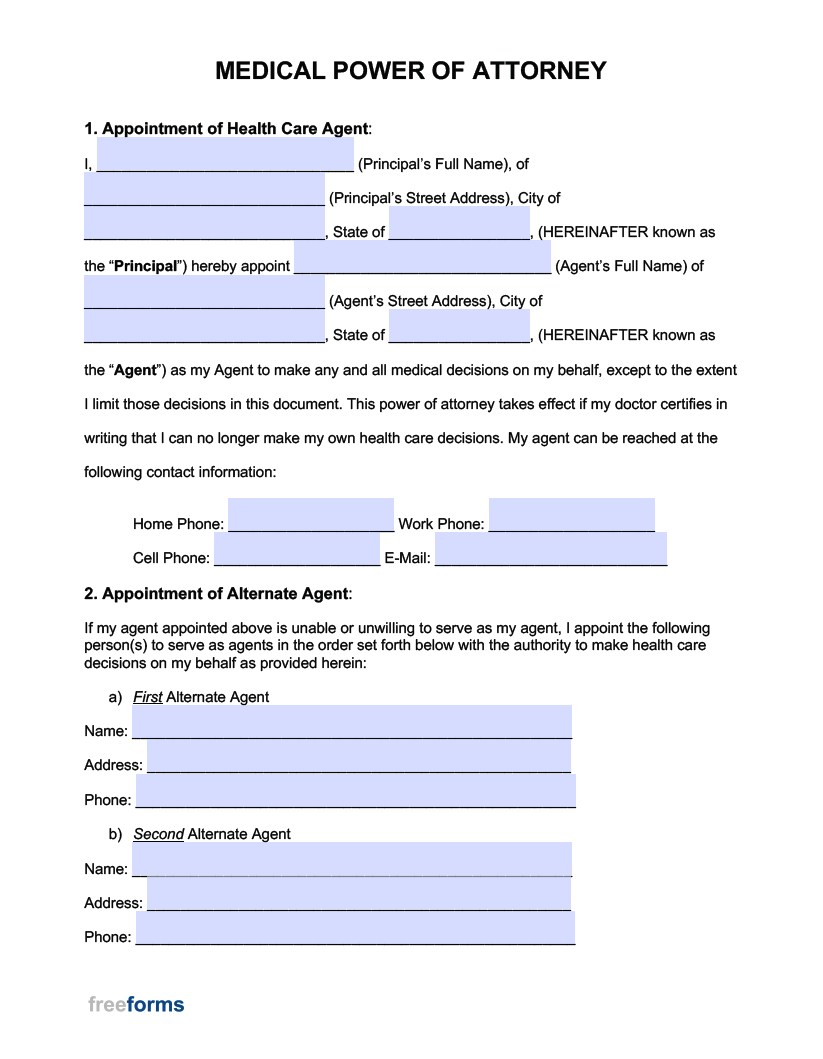A Medical Power of Attorney (MPOA) is a legal document that empowers someone you trust, known as your agent, to make healthcare decisions on your behalf if you become unable to do so. This document is crucial for ensuring that your wishes regarding medical treatment are followed, even if you’re unable to communicate them yourself.
Key Provisions of a Medical Power of Attorney
Appointment of Agent: You’ll designate the person you want to serve as your agent. This could be a family member, friend, or trusted healthcare professional.

Image Source: freeforms.com
How to Create a Medical Power of Attorney
1. Obtain a Template: You can find MPOA templates online, through legal aid organizations, or from your state’s bar association.
2. Review and Customize: Carefully read the template and make any necessary changes to reflect your preferences.
3. Sign and Witness: Ensure that the document is properly signed and witnessed according to your state’s laws.
4. Store Safely: Keep a copy of your MPOA in a secure location, such as a safe or with your attorney.
Conclusion
A Medical Power of Attorney is a vital tool for protecting your health and ensuring that your wishes are respected. By creating this document, you can provide peace of mind for yourself and your loved ones, knowing that your healthcare decisions will be in good hands.
FAQs
1. Do I need a lawyer to create a Medical Power of Attorney? While you can use a template, consulting with an attorney can help ensure that your document is legally sound and tailored to your specific needs.
2. Can I change my Medical Power of Attorney? Yes, you can revoke or modify your MPOA at any time. Simply create a new document or a written statement revoking your previous one.
3. What if I don’t have a designated agent? If you don’t appoint an agent, your healthcare decisions may default to your next of kin or a court-appointed guardian.
4. Can I limit my agent’s authority? Yes, you can specify the types of healthcare decisions your agent can make. For example, you might limit their authority to decisions related to end-of-life care.
5. Should I include a Living Will with my Medical Power of Attorney? A Living Will expresses your wishes regarding end-of-life care. While it’s not required, it can complement your MPOA and provide additional clarity about your preferences.
Medical Power Of Attorney Template







